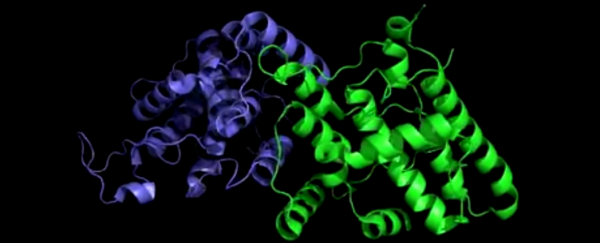Our cells do a lot of heavy lifting in our body. But if you simplify the life of a cell it basically looks like this: they grow, they divide, and they eventually die a programmed 'suicidal' death.
These three processes are regulated by a group of proteins belonging to the Chloride Intracellular Ion Channel (CLIC) family. And now scientists from UTS:Science in Australia have found they're even more important than we originally thought.
There are six of these rucial proteins in humans, and they exist in two forms - a poorly understood soluble form that can spontaneously convert into the second form, which takes residence inside the cell membrane.
In this latter form, the proteins act as important ion channels, facilitating or restricting the flow of different ions between cells.
That's an important enough job on its own, but now a research team from UTS:Science has discovered that the proteins are actually doing a lot more work inside cells than they've traditionally been given credit for - particularly when they're in their soluble state - and can speed up a range of chemical reactions inside cells. It's a finding that could help researchers locate new drug targets and speed up diagnosis for certain diseases, the UTS:Science team says.
"We have now discovered that in addition to this activity these proteins are also capable of carrying out enzymatic activity within cells – essentially the process of speeding up reactions inside cells. This multifunctional activity is referred to as 'moonlighting'." says molecular biologist and lead investigator Stella Valenzuela from UTS:Science in a press release.
"This new function is like a code breaker that may unravel new functions within cells in curing or treating certain diseases," Valenzuela said in the UTS:Science release.
"People are always looking for ways to discriminate the normal from pathological, so if we've identified elevated levels of a CLIC protein in cancer cells or in blood circulation then that could be a nice biomarker that could be used in medicine and diagnostics."
Previous studies had shown that CLIC proteins were structurally similar to another set of proteins, which play an important role in detoxifying cells, but the UTS:Science group is the first to show that they can trigger enzyme activity to speed up chemical reactions in cells.
"This development is very exciting because it opens up an entire new realm for us to start exploring the functions of these proteins in a way we had previously ignored, and in fact hadn't realised was there," said Valenzuela.
The study was jointly led by UTS:Science PhD student Heba Al Khamici, and the results were published in PLOS One.
Find out more about the world-leading research happening at UTS:Science, and how you can be involved.
Source: UTS:Science
